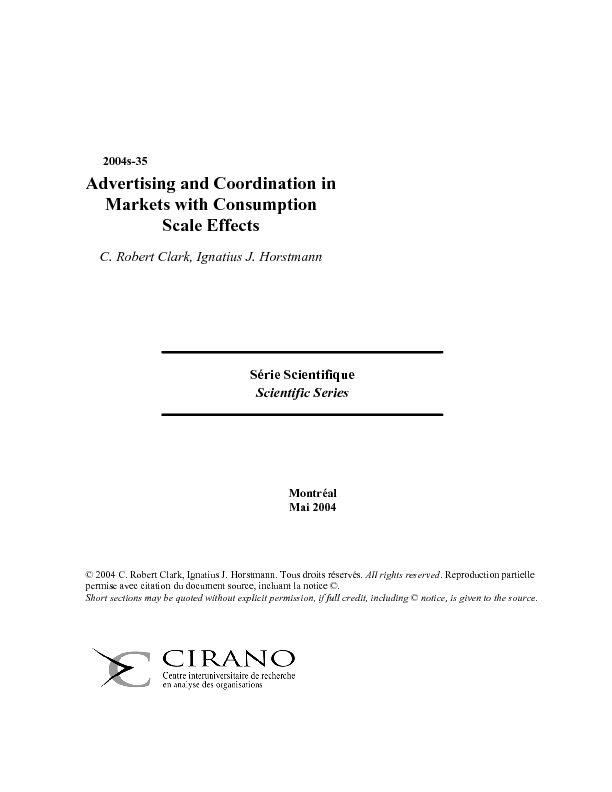Advertising and Coordination in Markets with Consumption Scale Effects
Many heavily advertised consumer products are both well established and have no obvious quality variation. A signaling explanation for advertising in these product categories is therefore not compelling. In this paper we develop a model of firm advertising based on the notion that consumer valuations of different products may depend on the number of individuals purchasing each. We show that firms can use advertising to coordinate consumer purchases in such cases, even if advertising levels are unobservable. Failure to see an ad for a product leads consumers to believe that the product is likely low value and firms advertise to avoid these negative beliefs. We show that the model can generate predictions on advertising, market share and profitability that are consistent with observed behavior. The model also generates the stable prices and market share time series behavior observed for advertised consumer products and that existing coordination models fail to provide.
[ - ]




